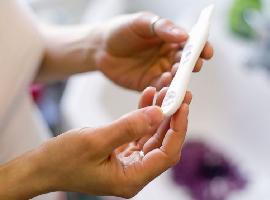 view post
view post
Why Can't I Get Pregnant
- 2
- 0
- 2019-04-03
- By: Jane

Infertility can be caused by many different factors, such as diseases (e.g. venereal disease, diabetes, etc.), psychological issues, and environmental and industrial contaminants. These risk factors can affect both male and female reproductive systems and, in particular, do harm to spermatogenic cells, leading to deterioration in both sperm counts and quality. Besides, long-time exposure to high-level radiation may cause infertility as well. Normally, if you have been married for over one year but still haven’t got pregnant, you should be alerted and go to hospital for infertility tests.
Female infertility has been on the rise in recent years. According to statistics, of all infertility cases, about 45% are caused by female infertility, 25% by male infertility, 22% by infertility on both sides, and 8% by unknown reasons.
If you are struggling with infertility and wondering “why can’t I get pregnant”, read these possible reasons for not conceiving a baby.
Causes of Female Infertility
1. Ovulatory Dysfunction
A prerequisite for fertility is normal and regular ovulation that requires a fully functional hypothalamic-pituitary-ovary axis. Any factors that may affect the function of this system or lead to organic changes can influence ovulation. Ovulatory dysfunction is a major cause for female infertility.
2. Pelvic Factors
Pelvic factors, which are among primary causes of female infertility, include endometriosis and pelvic inflammatory disease (PID) that may trigger anatomic changes in oviducts and ovaries, and other pelvic factors.
3. Uterine Factors
Uterine factors that can lead to infertility include uterine malformations, uterine hypoplasia, submucous myoma, intrauterine adhesions, endometrial adenoma, etc. These factors can affect the implantation and development of embryos, thus leading to infertility.
4. Cervical Factors
Cervical factors for infertility include cervical abnormalities, cervical stenosis and adhesions, and cervical erosion.
5. Cervical Mucus Abnormalities
Cervical mucus abnormalities occur when cervical mucus changes in amount, consistency or PH value, or contains antisperm antibodies.
6. Immune Factors
Antisperm antibodies contained in female serum, cervical mucus or follicular fluid can cause infertility.
7. Excessive Smoking and Drinking
Cigarette smoking can have harmful effects on ovarian function, and result in irregular menstruation, premature menopause and infertility. Drinking alcohol can cause ovulatory dysfunction and also trigger endometriosis, menstrual disorders and dysmenorrheal.
8. Obesity
Causes of infertility in obese women include central nervous system factors (such as mood disorders and hypothalamic dysfunction) and ovarian factors.
Causes of Male Infertility
Primary causes of male infertility include low sperm count, malformed sperms, reduced sperm motility, ejaculatory dysfunction and ejaculatory duct obstruction
1. Disease
I. Factors affecting sperm production and semen quality include:
Varicocele, infection, sperm antibodies, cancer, cryptorchidism, endocrine disorders, chromosomal abnormalities, abdominal or pelvic disease, and certain drugs.
II: Factors affecting sperm injection include:
Vas deferens disease, abdominal or pelvic diseases, certain drugs, loss of libido, erectile dysfunction, and ejaculatory dysfunction.
2. Environmental Factors
Contact with pesticides, exposure to heavy metals, X-ray or radiations, and high testicular temperature.
3. Life Styles
Drug addiction, excessive drinking, smoking, mental stress, vitamin deficiency, obesity, and aging.







